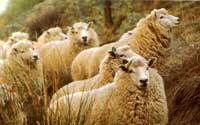Difference between revisions of "Breed"
(Created page with 'File:lighterstill.jpgright|frame ==Origin== [http://nordan.daynal.org/wiki/index.php?title=English#ca._1100-1500_.09THE_MIDDLE_ENGLISH_P...') |
m (Text replacement - "http://" to "https://") |
||
| (One intermediate revision by the same user not shown) | |||
| Line 2: | Line 2: | ||
==Origin== | ==Origin== | ||
| − | [ | + | [https://nordan.daynal.org/wiki/index.php?title=English#ca._1100-1500_.09THE_MIDDLE_ENGLISH_PERIOD Middle English] ''breden'', from [https://nordan.daynal.org/wiki/index.php?title=English#ca._600-1100.09THE_OLD_ENGLISH.2C_OR_ANGLO-SAXON_PERIOD Old English] ''brēdan''; akin to Old English ''brōd'' brood |
| − | *[ | + | *[https://en.wikipedia.org/wiki/12th_century before 12th Century] |
==Definitions== | ==Definitions== | ||
*1: to keep and take [[care]] of [[animals]] or [[plants]] in order to produce more animals or plants of a particular kind | *1: to keep and take [[care]] of [[animals]] or [[plants]] in order to produce more animals or plants of a particular kind | ||
| Line 9: | Line 9: | ||
*3: to take care of and teach (a child who is [[growing]] up) | *3: to take care of and teach (a child who is [[growing]] up) | ||
==Description== | ==Description== | ||
| − | A '''breed''' is a specific group of domestic [[animals]] or [[plants]] having [[homogeneous]] appearance, homogeneous [[behavior]], and other characteristics that distinguish it from other animals or plants of the same [[species]] and that were arrived at through [ | + | A '''breed''' is a specific group of domestic [[animals]] or [[plants]] having [[homogeneous]] appearance, homogeneous [[behavior]], and other characteristics that distinguish it from other animals or plants of the same [[species]] and that were arrived at through [https://en.wikipedia.org/wiki/Selective_breeding selective breeding]. Despite the centrality of the [[idea]] of "breeds" to animal husbandry, no scientifically accepted [[definition]] of the term exists. A breed is therefore not an objective or biologically verifiable [[classification]] but is instead a term of art amongst groups of breeders who [[share]] a [[consensus]] around what [[qualities]] make some members of a given species members of a nameable subset. The term is distinguished from ''[https://en.wikipedia.org/wiki/Landrace landrace]'', which refers to a naturally occurring regional variety of domestic (and sometimes [https://en.wikipedia.org/wiki/Feral feral]) animal through uncontrolled breeding. |
| − | When bred together, [[animals]] of the same breed pass on these [[predictable]] [[traits]] to their offspring, and this ability—known as "[ | + | When bred together, [[animals]] of the same breed pass on these [[predictable]] [[traits]] to their offspring, and this ability—known as "[https://en.wikipedia.org/wiki/Breeding_true breeding true]"—is a requirement for a breed. Plant breeds are more commonly known as [https://en.wikipedia.org/wiki/Cultivar cultivars]. The offspring produced as a result of breeding animals of one breed with other animals of another breed are known as [https://en.wikipedia.org/wiki/Crossbreed crossbreeds] or mixed breeds. Crosses between animal or plant variants above the level of breed/cultivar (species, subspecies, botanical variety, even different genera) are referred to as [[hybrids]].[https://en.wikipedia.org/wiki/Breed] |
[[Category: Biology]] | [[Category: Biology]] | ||
Latest revision as of 23:45, 12 December 2020
Origin
Middle English breden, from Old English brēdan; akin to Old English brōd brood
Definitions
- 1: to keep and take care of animals or plants in order to produce more animals or plants of a particular kind
- 2: to produce young animals, birds, etc. : to produce offspring by sexual reproduction
- 3: to take care of and teach (a child who is growing up)
Description
A breed is a specific group of domestic animals or plants having homogeneous appearance, homogeneous behavior, and other characteristics that distinguish it from other animals or plants of the same species and that were arrived at through selective breeding. Despite the centrality of the idea of "breeds" to animal husbandry, no scientifically accepted definition of the term exists. A breed is therefore not an objective or biologically verifiable classification but is instead a term of art amongst groups of breeders who share a consensus around what qualities make some members of a given species members of a nameable subset. The term is distinguished from landrace, which refers to a naturally occurring regional variety of domestic (and sometimes feral) animal through uncontrolled breeding.
When bred together, animals of the same breed pass on these predictable traits to their offspring, and this ability—known as "breeding true"—is a requirement for a breed. Plant breeds are more commonly known as cultivars. The offspring produced as a result of breeding animals of one breed with other animals of another breed are known as crossbreeds or mixed breeds. Crosses between animal or plant variants above the level of breed/cultivar (species, subspecies, botanical variety, even different genera) are referred to as hybrids.[1]
